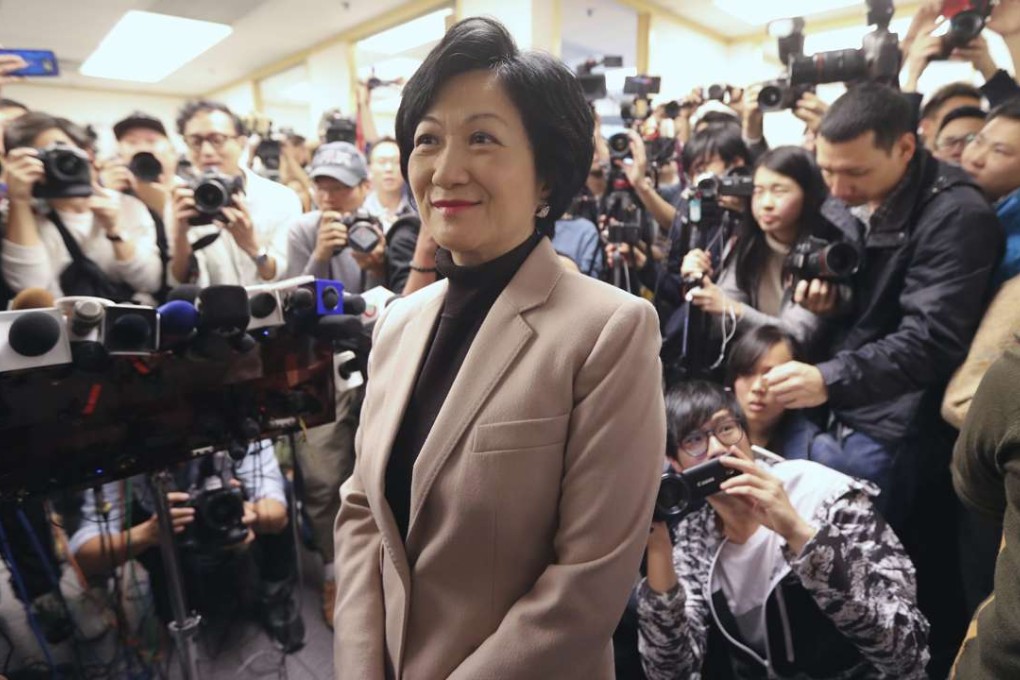Regina Ip ‘squeezed out’ of Hong Kong chief executive race
Pro-establishment candidate blames election system after falling far short of 150 nominations needed

Regina Ip Lau Suk-yee pulled out of Hong Kong’s chief executive race on Wednesday, declaring she had been “squeezed out” of a “restrictive” electoral system with only 1,194 voters tasked to pick the city’s next leader.
The New People’s Party chairwoman, who was similarly forced to drop her first bid for the top job in 2012 because of insufficient support, announced her failure to secure the 150 nominations required to formally qualify for the race, just hours before the deadline to hand them in.
Watch: Regina Ip withdraws from Hong Kong leadership contest
She conceded the number of entry tickets she had secured during her 77-day campaign was “far behind what was needed”.
“I lagged behind because I am an independent,” she said. “I hoped to be an open-minded pro-establishment candidate ... who could win support across the spectrum. It is difficult, but I have no regrets.”
Ip, 66, who announced her intention to run on December 15, blamed it on the election system.
“I failed to get in again because of the limitation of our system. Our Election Committee has only 1,194 votes,” she said. “So when you have four candidates – basically all from the pro-establishment camp – competing, I have been squeezed out.”